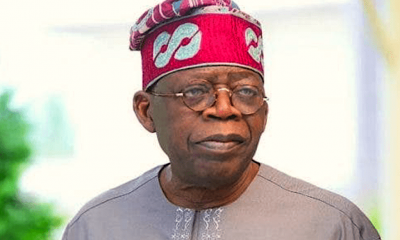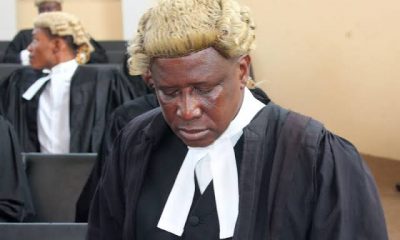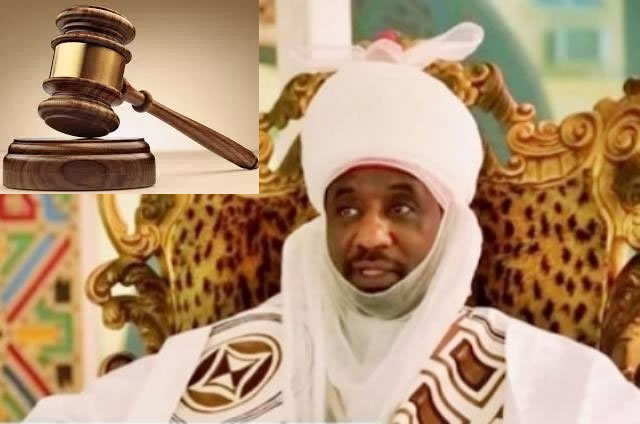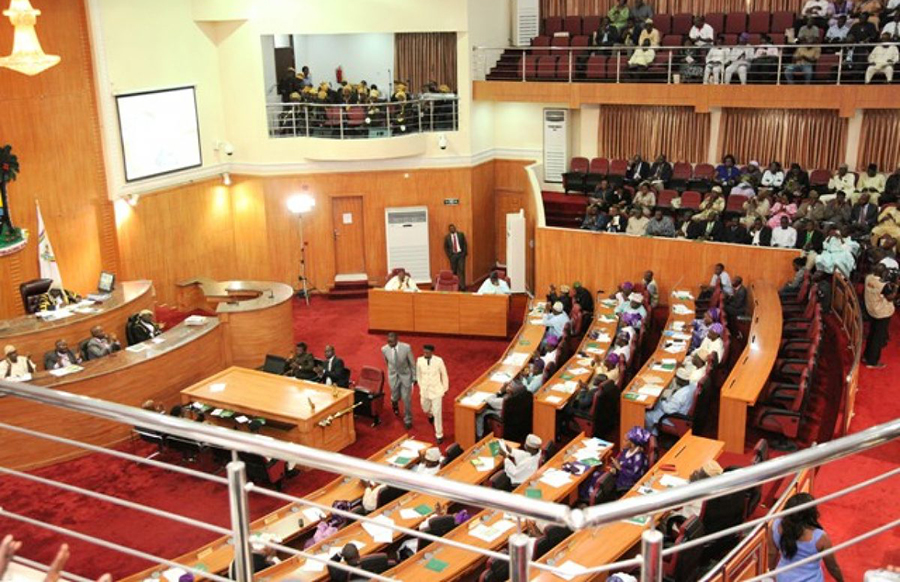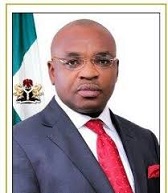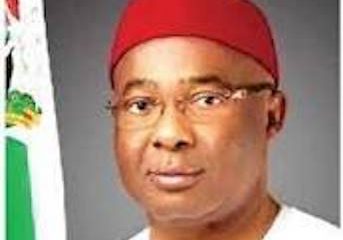OPINION
GOODLUCK JONATHAN: A BEAUTIFUL POLITICAL BRIDE for 2023
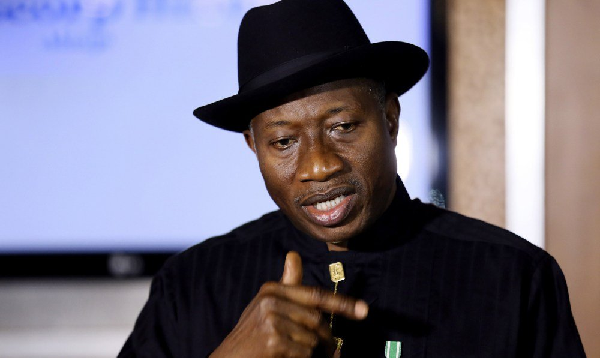
By Yerima Alkali
The main opposition-Peoples Democratic Party(PDP) appears to have woken from its slumber, when some prominent members of the party paid a solidarity visit to former President Goodluck Ebele Jonathan(GEJ) at his Abuja home on February 18.
The delegation led by former Senate President, Bukola Saraki was comprised of another former Senate President, Anyim Pius Anyim, former Governors Liyel Imoke, Ibrahim Shema, Ibrahim Hassan Dankwambo and other members of the party’s reconciliation committee.The Saraki-led committee appointed in 2019 to resolve internal crisis within the party said it came to brief the Ex-president of the committee’s plans for the future of the party.
Saraki, who briefed newsmen after the closed-door meeting that lasted for about an hour, said Jonathan was still committed to the PDP. Its baffling that PDP leaders had carried on the afafirs of the party for some time to the exclusion of Jonathan.
For the records, Jonathan remains the only former President of the country, who is a member of the PDP since his Predecessor, Chief Ousegun Obasanjo publicly tore his membership card before a national television viewership in 2015.
Unfortunately, in spite of Jonathan’s towering stature in the party, the Uche Secondus-led National Working Committee(NWC) had continued to lead the party as if there was no leader, whereas the PDP constitution clearly recognizes the Ex-president as Leader of the Party.
Secondus, who is believed to have his eyes firmly on succeeding Chief Nyesom Wike as Governor of Rivers state in 2023 appears to have abandoned his responsibility as National Chairman of the party as he has carried on without any modicum of decency, requiring of him to consult prominent leaders of the party on major decisions especially, former President Jonathan.
It is regrettable that the National Chairman has observed this basic but time-tested tradition of the PDP in the breach in his relationship with Jonathan. Rather than have a firm gripon the affairs of the party, Secondus’ preference, it does appear is to building his wall chest in readiness for his obviously vain gubernatorial ambition, which from all indications appears to be heading towards a fiasco, with Governor Wike believed to be stoutly opposed to it.
As the Secondus-led Executive regaled in treating Jonathan with contempt, he turned a beautiful bride to the ruling-All Progressives Congress(APC).
When the former President marked his birthday in November last year, a delegation of APC Governors came to Ogbia, the country home of Jonathan to celebrate with him.
Since the visit, there have been talks about plans by the Northern Governors of the party to field Jonathan as the party’s presidential candidate in 2023, with the Kaduna State Governor, Nasir el-Rufai as his running mate.
Although the National Caretaker Committee Chairman of APC, Mai Mala Buni has since denied any such plans, its clear to any close watcher of national politics in the country, that this possibility is what jolted the PDP to action with the visit on February 16, by the Saraki-led committee.
There is no gain stating the obvious that Jonathan has turned a beautiful political bride ever since he left power in 2015 by willingly accepting defeat to hand over to the opposition party for the first time in the nation’s political history.
That singular act has stood out Jonathan as a committed democrat, an uncommon patriot and statesmen. The APC national Chairman attested to this when he spoke recently to clear the air on the party’s relationship with the former President.
“Eeven if someone wants to base assumption on our recent visit to him(Jonathan) during his birthday, we were there because of his capacity as a former President of Nigeria.
“Again, even if there is nothing, when we are talking of peaceful coexistence, we must give credit to former president Jonathan on the issue of peace. How he accepted defeat in 2015 and resigned to fate. That has qualified him to be a statesman and he is now among our fathers,” media reports quoted Buni to have said in recent media reports.
Since leaving office, Jonathan has deepened his democratic credentials by successful manner he has executed numerous international assignments. Since leaving office, he led numerous Election Observer missions to including Tanzania, Zambia, Liberia, Sierra Leone and South Africa and Mozambique on the auspices of the African Union. His latest international assignment as the Special Envoy and
Chief Negotiator for the Economic Community of West African states (ECOWAS) in the Mali political crisis.
Given his rather soaring international profile, the APC political machine might have seen through its political crystal balls that were it to zone its presidential ticket to the South, Jonathan would as well be the best bet, hence the seeming romance. Such a scenario would certainly translate to a monumental loss for the PDP as it positions for the 2023 general elections.
Whichever way, the PDP would have Jonathan to thank for his principled approach to the practice of politics as he has said he had no plans to leave the party.
““PDP has been a very friendly party. I am a PDP member, and I know from the beginning till today that it has been a very friendly party. PDP is a party that carries everybody along. Let us work together for the interest of our people,” Jonathan said last Sunday at a Thanksgiving in Yenagoa, to mark the Supreme Court victory of the Governor, Senator Duoye Diri.
That notwithstanding, the point must be made and clearly too, that the Secondus-led leadership has failed the party and it makes the greatest sense that it must give way for the PDP to have a fresh breath.
Were it in other saner political climes, the leadership should have stepped down after losing the 2019 presidential election, but not for Secondus, who sees the national chairmanship of the PDP purely from the prism of self-interest.
The critical question however, is for how long will he continue to dig the pit for the party’s avoidable fall?
Mallam Alkali, a Public Affairs Analyst sent this contribution from Ilorin, Kwara State.
OPINION
GTBank, VeryDarkMan, and the EFCC: A Dangerous Precedent for Free Speech in Nigeria

By Jeff Okoroafor
In recent weeks, the arrest of social media activist Martins Vincent Otse, popularly known as VeryDarkMan (VDM), by the Economic and Financial Crimes Commission (EFCC) has sparked outrage and reignited debates about the Nigerian government’s misuse of law enforcement agencies to suppress dissent.
The circumstances surrounding his detention—reportedly linked to his criticisms of Guaranty Trust Bank (GTBank) and its influential customers—raise serious concerns about the weaponization of financial and anti-corruption institutions to silence critics. VeryDarkMan, known for his unfiltered commentary on social and political issues, has built a reputation for exposing alleged corruption, fraud, and misconduct among Nigeria’s elite. His recent posts questioning GTBank’s dealings with high-profile individuals appear to have triggered his arrest. While the EFCC claims his detention is related to “cyberstalking” and “defamation,” many see it as a politically motivated move to punish him for speaking truth to power.This is not the first time a vocal critic has been targeted under dubious charges. The EFCC, originally established to combat financial crimes, has increasingly been accused of being weaponized by the government and powerful interests to intimidate activists, journalists, and opposition figures. The agency’s swift action against VDM—while turning a blind eye to far more severe cases of fraud involving politically connected individuals—exposes its selective enforcement of the law.GTBank, one of Nigeria’s most prominent financial institutions, has denied involvement in VDM’s arrest. However, given the bank’s history of litigation against critics and its connections to influential figures, skepticism remains. If GTBank or any of its high-net-worth customers pressured authorities to detain VDM for his online commentary, it would represent a dangerous collusion between corporate power and state repression.Banks should not operate as instruments of censorship. If citizens cannot question financial institutions without fear of arrest, Nigeria’s already fragile democracy suffers further erosion. The right to criticize corporations—especially those handling public funds—is fundamental to accountability.The EFCC was once hailed as a crucial anti-graft agency, but under successive governments, it has devolved into a tool for political vendettas. From the arrest of journalists like Agba Jalingo to the harassment of activists like Omoyele Sowore, the pattern is clear: the EFCC is increasingly deployed to stifle free speech under the guise of fighting cybercrime.Section 24 of Nigeria’s Cybercrime Act, often cited in such cases, is dangerously vague and prone to abuse. It criminalizes “offensive” or “annoying” messages, giving authorities broad discretion to punish dissent. This law, alongside the EFCC’s growing politicization, creates a chilling effect where citizens self-censor to avoid persecution.The arrest of VeryDarkMan is not just about one individual—it is a test of Nigeria’s commitment to free speech. If financial institutions and government agencies can arbitrarily detain critics, then no voice is safe. Civil society, the media, and the legal community must push back against this authoritarian trend.Judicial Accountability: Courts must scrutinize EFCC’s actions and reject frivolous charges meant to suppress speech.Legislative Reform: The Cybercrime Act should be amended to remove ambiguous provisions that enable repression.Public Pressure: Nigerians must demand transparency from GTBank and the EFCC, ensuring that neither entity is used to punish critics.Nigeria cannot claim to be a democracy if the state and corporate powers conspire to silence dissent. The EFCC must return to its core mandate of fighting corruption—not citizens. VeryDarkMan’s case should serve as a rallying cry for all who believe in free expression. If we allow this precedent to stand, we risk descending into a regime where only the powerful have a voice, and truth is a punishable offense.Jeff Okoroafor is a social accountability advocate and a political commentator focused on governance, accountability, and social justice in West Africa.OPINION
Reforms, Reluctant Reformers and Bold Reforms
By Uddin Ifeanyi
The incumbent Federal Government is wont to make a song and dance of its reform credentials. Of late, it has been all about how smitten the international community is by these reforms – never mind that a growing domestic cohort chafes at them.Most other times, government’s spokespersons advert attention to how brave the Tinubu administration was to roll back the subsidy schemes in both the foreign exchange and domestic petrol markets.
Against the backdrop of the pussyfooting by its predecessors around both these reforms, the Tinubu government’s shills make a persuasive case. History, however, has more than one way of being explained. Its consequences, not so. In the case of the Tinubu government’s storytelling around its two most important market-based reforms, one indubitable consequence of the failure of previous governments to deal with financial leakages in the foreign exchange and downstream oil and gas sectors of the economy was that the exchequer had haemorrhaged to the point of severe anaemia when this government came into power.It is doubtful if the Tinubu administration could have carried on business as usual in these sectors without beaching the ship of state. Did the government, then, act from the courage of its convictions? No. More like captives of circumstances would. This reading is reinforced by the government’s subsequent reform failures. Assume, for the sake of argument, that the recourse to market-based reforms was in recognition of the need to properly price domestic transactions as part of the effort to ensure the efficient use of domestic resources. Is there a more necessary requirement for meeting this objective than reforms that improve the efficiency of the state?Unlikely. But the incumbent Federal Government has done nothing to address a state that is generally acknowledged to be too bloated, both for its own good and for the benefit of the economy that it is there to serve. The Oronsaye Report may no longer be as easily applicable as a reform initiative as when it was first released. But this is only because the Tinubu government has increased the state’s capacity, without notably making it more efficient. In administration, as in philosophy, the simplification of entities is a far more compelling case for the efficient generation, deployment, and use of increasingly scarce resources than their multiplication.If the administration then fails in its own reasoning, in so far as reforms to the organisation of the state is concerned, it can hardly be described as bold in its execution, either. Nowhere is this latter failing more glaring than in our administration of criminal justice. If the Nigeria Police Force daily fails the test of public opprobrium, the judiciary scarcely paints itself in glowing colours either.Yet, both are critical for an efficient market economy. The Americans still use cheques for their financial transactions. We cannot. And this is not because we have a far more sophisticated financial services space. True, settlements of banking transactions take place faster, here.True, we also have statutes against the issuance of dud cheques. But enforcement of any law, rule or regulation is a nightmare, here. Banks struggle to recover collaterals pledged for loans. Small wonder that we do not have a thriving mortgage space? The trust deficit has far-reaching implications, unfortunately. With it, contracts cannot be freely entered into. And yet, we are still to see reforms to our criminal justice system from our bold advocates.No less important, the state’s capacity to properly regulate the private sector is still in doubt. This is as much a case of regulatory capture as it is a worry about competence. Capture is worrisome, especially when private entities compromise a regulator. But its effects are no less harmful when industry is influenced and controlled by the arm of the state set up to regulate it. Either way, economic vibrancy is lost. And with it all prospects of attracting investments – whether of a local or foreign variety.Thankfully, there is still just about enough time and space for some of the reforms that the economy needs. The fear is that protestations to the contrary aside, we still suffer a severe shortage of the cojones needed to see these reforms through.Uddin Ifeanyi, journalist manqué and retired civil servant, can be reached @IfeanyiUddin.OPINION
Electoral Reform: INEC, Citizens’ Proposals, and the Implications for 2027

By Samson Itodo
Nigeria’s 2027 elections, now just 21 months away, may be regulated by a new electoral law, possibly the Electoral Act 2025, as long as the National Assembly concludes the ongoing amendment process and the President grants assent to the bill this year.Therefore, the next few months will be determinative.
Debates on electoral reforms and proposed amendments to key sections of the Election Act 2022 and Constitution will dominate public discourse. As the momentum of the 2027 election gathers steam, politicians are becoming more invested in tweaking the rules of the game to guarantee electoral victory in 2027 rather than ensuring electoral reform proposals address the intractable challenges bedevilling Nigeria’s electoral process.Foremost among these challenges is the declining public trust in the electoral process due to election manipulation. Also, ‘captured’ democratic institutions, like INEC and the judiciary, are encumbered by persistent political interference and lastly, policies and practices that disenfranchise eligible citizens from voting.INEC’s Proposals for Electoral ReformINEC has officially highlighted its proposals for electoral reform in the current electoral cycle. These include four major constitutional amendments cutting across 16 sections of the 1999 constitution (As Amended). The proposals include the introduction of early voting and special voting to allow eligible voters on essential services to vote at elections. This includes election officials, security personnel, accredited journalists and election observers, as well as voters under incarceration and Nigeria living in the diaspora. This reform will ensure eligible voters are not disenfranchised as a result of their role in elections or location. To enhance the independence of the Commission, INEC is proposing the removal of the powers to appoint Resident Electoral Commissioners (RECs) from the President and vest the power in INEC. This amendment would empower INEC to appoint and discipline Heads of State Offices, FCT Offices, and State Directors of Elections. Furthermore, INEC is advocating for the establishment an Electoral OffencesCommission and a Political Party Regulatory Agency. To advance political inclusion, INEC recommends the creation of designated constituencies for women and persons with disabilities.In relation to the 2022 Electoral Act, INEC is advocating for amendments to 35 sections. Notable amongst the proposals include removing the ambiguities in the result management process, particularly the ambiguity in the words ‘transfer’ and ‘direct transmission’ of election results used in Sections 60(5) and 64(4 and 5) of the Electoral Act, which in the estimation of the Commission has resulted in conflicting interpretation.Another significant proposal is the introduction of a caveat to limit INEC’s power to review election results solely to cases of declaration of results under duress. Finally, INEC proposes the introduction of electronically downloadable voter cards or any other form of identification acceptable to the Commission for voter accreditation. This would enhance voter participation and reduce barriers to participation, especially where the physical distribution of Permanent Voter Cards (PVCs) has proven challenging.Citizens’ Demands for Electoral ReformFollowing extensive consultations and a review of both domestic and international election observation recommendations, civil society groups released a Citizens’ Memorandum on Electoral Reform (2024). The memorandum outlines 37 recommendations under 15 strategic objectives across 15 priority reform areas.A key citizen demand is strengthening INEC’s independence and professionalism. To achieve this, the power vested in the President to appoint the Chairman, National Commissioners, and RECs should be removed and a multi-stakeholder appointment mechanism adopted.This will ensure appointment to INEC are merit-based appointments and devoid of political interference. The constitutional criteria of “non-partisanship and unquestionable character” should be expanded to include professional qualifications, health status, age, and gender.The introduction of mandatory timelines for appointments into INEC, such as requiring vacancies to be filled within 30 days, is recommended. It will prevent unwarranted delays in constituting the Commission as witnessed in the current instance where the second National Commissioner position for the South East vacated by Barr. Festus Okoye, two years ago, remains unfilled.Another significant demand is the resolution of pre- and post-election disputes before the swearing-in of elected officials. This amendment will enhance the legitimacy and stability of the electoral process. Achieving this will require revising election timelines as well as abridging the timeframe for hearing and determining pre-election matters and election petitions.The citizen memo also advocates for mandatory electronic transmission of results and legal timelines for testing electoral technologies deployed by INEC. These steps are crucial to improving transparency of any part of the electoral powered by technology. To enhance voter turnout, the memorandum proposes a review of the requirements for voter identification to permit the use of other legally acceptable means of identification for voter verification in addition to Permanent Voters’ Cards (PVCs).Lastly, early voting is proposed to accommodate election officials and voters delivering essential services on election day such as security personnel, journalists, and accredited observers. This reform would ensure these critical actors are not disenfranchised due to their responsibilities on election day.Implications for the 2027 ElectionsWhile President’s Tinubu electoral reform agenda remains unclear, the National Assembly, through its joint committee on electoral reform, has made significant progress in the review of electoral laws. Four critical priorities emerge from INEC’s proposals and citizens demands:First, there is a great need to introduce special mechanisms to uphold citizens’ right to vote by making voting accessible. Proposals like early/special voting will enable historically marginalized eligible voters exercise their franchise. It will be historic for INEC officials, inmates, Nigerians in the diaspora, and others to cast their ballot in 2027 due to early/special voting. Alternative forms of identification and downloadable voter cards could address voter disenfranchisement resulting from the non-issuance of PVCs.Secondly, the election results management regime needs an overhaul. Certain ambiguities in the current electoral act that occasion misinterpretation and discretionary enforcement need to be resolved to clear procedures for collation and transmission.This should include compulsory electronic transmission to complement the manual collation process. Although the Supreme Court has ruled that the INEC IReV is not part of the collation process, this reform cycle presents an opportunity to integrate electronic transmission into the results collation process. Unfortunately, electronic transmission has not featured as a priority reform issue in the current reform process in the National Assembly.Thirdly, INEC’s independence is non-negotiable. There is growing consensus that divesting the power to appoint individuals from the President is a step towards recapturing the Commission and restoring public confidence. Lastly, concluding election disputes before swearing-in will create a sense of equity and prevent incumbents from influencing judicial outcomes using state resources and power.However, INEC’s proposal that its power to review election results under Section 65 Electoral Act 2022 should be limited to instances of declaration by duress is problematic. The current law provides two conditions for the exercise of this power: when election results are declared voluntarily and when election results are declared contrary to the provisions of the law, regulations and guidelines, and manual for the election. INEC’s proposal to eliminate the latter will further weaken the results management process, considering recent elections where elections were stolen through clear violations of the Electoral Act and INEC guidelines. Rather than limit the conditions, the current provision should be retained and strengthened to provide clarity on the procedure for activating the power to review election results.As Nigeria enters a critical period in the electoral reform cycle, history beckons the national assembly and the President to act as statesmen and women by prioritizing public interests above personal or partisan political gain. The country’s electoral process is bleeding and bereft of public trust. While electoral amendments are a pathway to rebuilding trust and safeguarding the credibility of the 2027 elections, attitudinal change among political elites is the reform most needed to ensure every vote counts in February 2027.Samson Itodo is an election, democracy, and public policy enthusiast. Itodo serves as the Executive Director of Yiaga Africa and Principal Partner of the Election Law Center. He is also a member of the Kofi Annan Foundation board and the Board of Advisers of International Institute for Democracy and Electoral Assistance (IDEA). Comments and feedback to sitodo@yiaga.org

